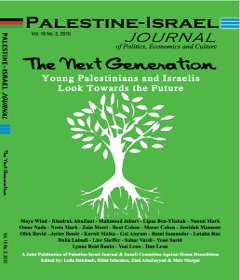In October 2007, I participated in an olive harvest in a small Palestinian village south of Hebron called Susya. Right next to it, there is a settlement by the same name. My personal acquaintance in the past had been with the latter.
In March 2002, I was a tzoer (cadet) in the Israel Defense Forces (IDF) officer's course. On the evening of Passover that month, a suicide bomber went into the Netanya Park Hotel's Passover Seder and exploded himself, and 19 people were killed. In response, operation Defensive Shield was launched. The IDF took over all Palestinian-controlled cities of the West Bank. As they needed manpower, the IDF deployed the cadets to the West Bank. I ended up guarding and patrolling Susya for about a week.
First ContactWhile in Susya, I came face to face with a population I had only read about in newspapers. The settlers described life in Susya as "pastoral" and laid back. However, the longer I stayed, the more "slips of the tongue" I heard. They commented about harassment by the surrounding villagers, the Jewish right to this land, that the Palestinians took the land illegally and that the settlers' mission was to "Judaize" the area.
Obviously, they never said a word about the Palestinians who had died in the area during the previous two years, or about the standards of living in the neighboring Palestinian villages compared to that in Jewish Susya, with its running water and electricity.
The settlers' point of view on things in South Hebron was the one taken by the military. The commander of the platoon we replaced talked about the neighboring villages as "threats," ranging from "violent" to "dangerous." Our mission while patrolling the Jewish Susya perimeter was to keep the local population away from the settlement.
On Patrol in SusyaThis is what we did: We walked around the place day and night looking for "intruders," who always were lone shepherds with their sheep or goats. There was a specific guard post overlooking Palestinian Susya, where we spent a lot of time. Our interactions with the Palestinians took place primarily at that post.
Less than 100 meters away was an olive grove which belonged to the locals. Seeing a couple of patrolling soldiers was enough for them to turn back quickly. Besides shouts and threats made by us, we never had any real confrontation. Had it happened, we had the authorization to fire at will. The atmosphere at that time was one in which such an event would have hardly been regarded critically by commanders.
By the end of the week, my feelings were of disgust and dismay at the settlers' behavior, and the way they harness the military for their racist and fundamentalist aspirations.
Tongue-in-cheek, I told a fellow cadet and a friend of mine that my next visit to Jewish Susya would be riding a bulldozer.
Back in Susya, Out of UniformWhen a friend told me of the olive harvest in Palestinian Susya, I knew I had to go. Packed with over 50 volunteers, the bus made its way toward Susya. Again, I saw the scenery I had seen for the first time five years before. I felt excitement and anxiety upon seeing the two sides of Susya.
When we pulled over across from Jewish Susya and met with the local people from Palestinian Susya, we split into small groups to harvest different olive groves. A couple of minutes later, I found myself making my way toward the same olive groves above which I had stood as a soldier, preventing Palestinians from approaching.
We started working. I kept sneaking peeks at Jewish Susya, seeing soldiers observe us from the same post I had patrolled. Yousef, whose family's olive grove we were harvesting, told me they had not been able to harvest these areas for the last couple of years because of their fear of the settlers and of the military's reaction. I stood beneath the olive trees realizing that I had driven people from this place just five years before.
Finally, I was taking an active stand against the occupying apparatus I was once part of.
I know that the harvest in Susya, along with its display of goodwill and cooperation, is an exception to the general rule in the West Bank. No one can foresee the day when this sort of activity will become the norm.

